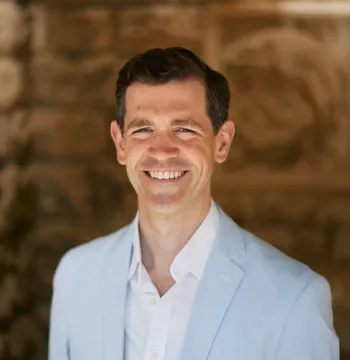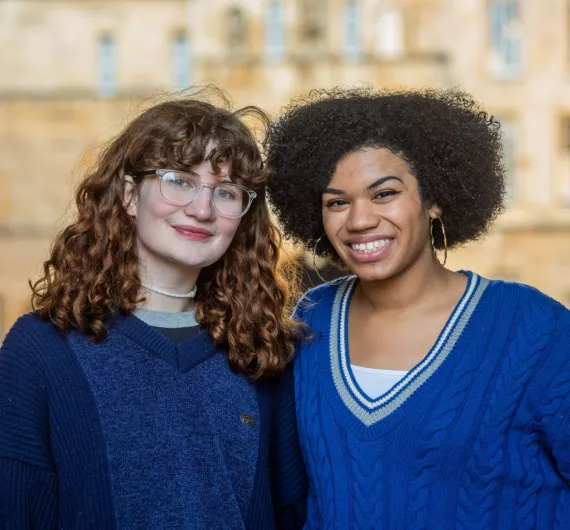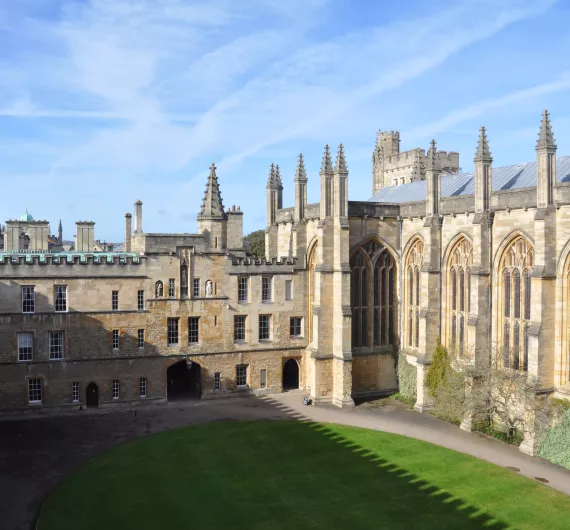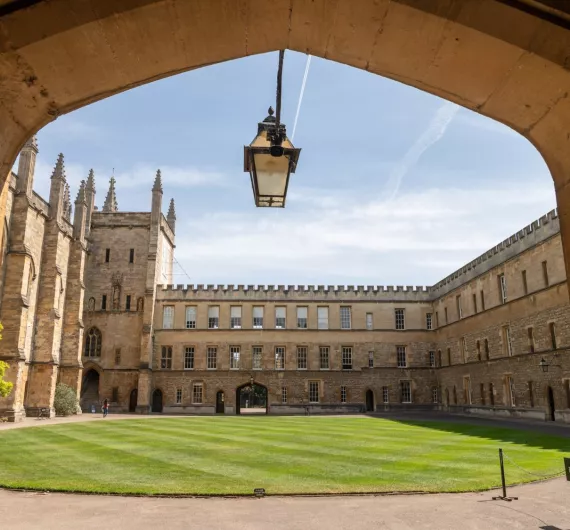Why New College?
As a subject, Arabic is both old and new at New College.
Arabic was taught here for many years and produced numerous distinguished graduates, notably D.S. Margoliouth (d. 1940), one of the most famous British orientalists of the twentieth century. Margoliouth was not only a master of Arabic, but also other Middle Eastern languages, including Syriac, Persian, and Hebrew. He was both a student and later a fellow of the College.
The teaching of Arabic at New College was discontinued for many years, but in 2023 it was revived. This is an exciting development for the College, especially given its long association with the study of the Middle East and its reputation for excellence in languages and other humanities subjects.
Places available
4 in total for Arabic and Joint Schools.
What we look for
When considering applications for Arabic, we look for students who combine an aptitude for languages with a curiosity about history, politics, literature, and religion, especially of the Middle East. We also look for those who can think critically and independently and who are open to learning about new cultures. We do not expect applicants to have necessarily studied Arabic before applying nor do we expect them to have studied the Middle East in a formal way. The undergraduate course is designed to provide an immersive introduction to both the language and the region in which it is spoken.
In preparing for your interview, it is important that you find time for a little independent reading (material in translation is fine, or indeed literature in English) so that you can determine whether the Oxford course is right for you.
In addition to knowledge of Arabic and the Middle East, the Oxford course fosters a range of transferrable skills. It teaches students to evaluate and master evidence; to analyse arguments; and to express their thoughts precisely and persuasively. Arabic is demanding, and therefore, studying it fosters linguistic precision and sensitivity. We look for students who can excel in such a course, regardless of whether their future career paths involve Arabic and the Middle East.
Tutors' research interests
Professor Christian Sahner: Professor Sahner is a historian and Arabist specialising in the late antique and medieval Middle East and neighbouring regions (ca. 500-1500). His work concerns the rise of Islam, relations between Muslims and non-Muslims (chiefly Christians and Zoroastrians), conversion, and the history of sectarianism. He is currently writing a book that explores the history of religious change and imperial power in certain hard-to-govern regions, including the mountains of North Africa, Syria-Lebanon, and Iran.
Along with Professor Sahner, students of Arabic at New College are taught by a wide array of postholders in the Faculty of Asian and Middle Eastern Studies who are affiliated with other Oxford colleges.
Joint Schools
We accept applications for Joint Schools with Modern Languages (known as EMEL, “European and Middle Eastern Languages”). Applications for EMEL should be exclusively with French, German, and Russian.
New College also accepts applications for Classics and Asian and Middle Eastern Studies, in which students may take up Arabic during the second part of the degree. This course is administered by Classics.
Applications for EMEL should be exclusively with French, German, and Russian.

Find out more about all the courses for which New College accepts applications.
Discover more about New College




